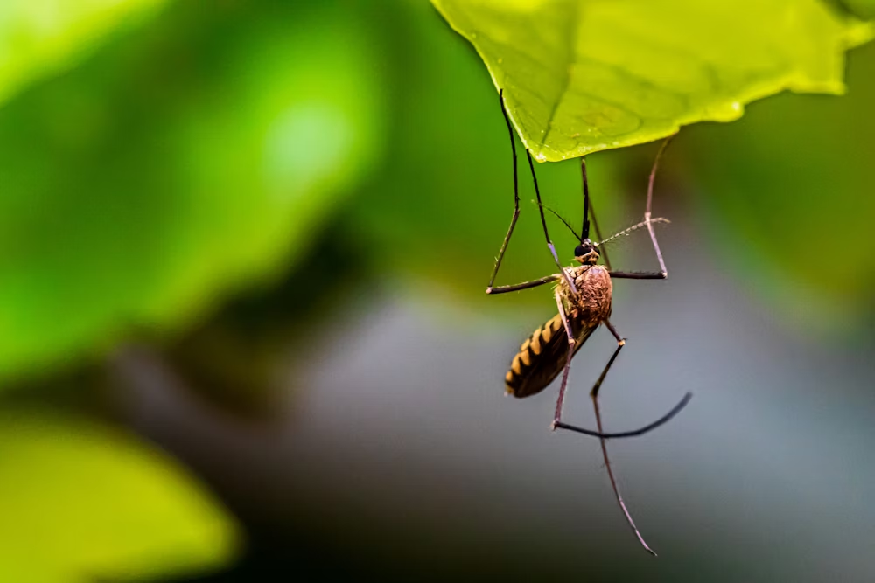Plants offer a natural approach to insect control that many homeowners overlook. Certain plant species produce compounds that naturally deter insects while adding beauty and improving air quality in your home. These botanical solutions work continuously without the need for constant reapplication or concern about chemical exposure.
However, indoor plants alone cannot eliminate severe insect infestations. They work best as part of a comprehensive pest management strategy that includes proper sanitation, moisture control, and sealing entry points. Research shows that some plant essential oils can reduce certain insect populations by up to 80% when used consistently in enclosed spaces.
Explore now by reading our blog post and learn which plants will work the best!
Which Indoor Plants Help In Repelling Pests
1. Aromatic Herbs with Insect-Repelling Properties
Basil is one of the best indoor plants to repel flies, mosquitoes, as well as aphids. The pungent odor of its leaves includes compounds like eugenol and citronellol that insects dislike. Sweet basil types are especially effective when grown indoors close to windows, doorways, and areas where flies accumulate.
Rosemary is yet another wonderful repellent for mosquitoes, flies, and carrot flies due to its pine-like aroma. This perennial woody herb grows indoors in full sun and well-draining soil. When touched or rubbed, it gives off a strong, sweet scent, which is why it makes a nice addition when planted along steps and walkways.
2. Flowering Plants That Deter Common Household Pests
Lavender has the added benefit of going beautifully in your garden and also deterring bugs. Its gentle aroma has the opposite effect on pests (moths, fleas, flies, and mosquitoes), making them want to steer as clear of it as possible. English lavender types make excellent indoor plants and can be kept in bedrooms as moths abhor the smell of this on clothes.
Midges do not like chrysanthemums, which contain pyrethrin, a natural substance found in some commercial insect repellents. These colorful blooms are known to deter ants, roaches, silverfish, and bed bugs when planted inside.
3. Specialty Plants for Targeted Pest Control
Catnip has nepetalactone, which studies have found can be more effective than the common insect repellent at repelling mosquitoes as well as cockroaches. This easy-to-farm plant can be grown indoors to keep your furry little friend entertained while protecting your home from pesky bugs. Place catnip plants in locations around your home where mosquitoes might enter, like near windows or doors.
Lemon balm is also a member of the mint family, and hinders the reception of mosquito, gnat, and ant antennae with its lemony smell. It grows fast inside and can be harvested frequently to continue to keep bugs at bay.
Other Tips to Remember When Repelling Insects
- Place the insect-repelling plants strategically next to entry points, such as doors, windows, and vents, where the pests come into your home
- Pinch or brush leaves to release more essential oils and enhance their ability throughout the day to keep pests at bay
- Coordinate a variety of plants to repel various insects, as a plant usually repels only certain insects, not all
- Take care of plants, ensure enough sunlight, watering, and fertilize, and plants grow healthy, the fragrance is strong
- Support plant-based deterrents with good sanitation, such as cleaning up food crumbs, repairing moisture problems, and sealing cracks where insects lurk
Bottom Line
House plants are nature’s air purifier, and can help you capitalize on this natural, chemical-free defense against insects and enjoy a more beautiful living environment. These are best complemented with basic home care measures and hygiene practices rather than as stand-alone insecticides. The secret to success is selecting the right plants to address the pests you have and taking care of them to make sure they will be as effective as possible.
Plants that repel insects are all very well and good, but in extreme insect infestations, these measures are not enough. Qualified pest control professionals can take a look at your situation and suggest integrated approaches that include natural repellents and targeted applications.

